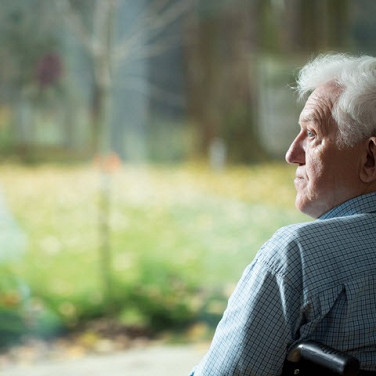The life expectancy of individuals with Parkinson's disease can vary significantly based on several factors, including age at diagnosis, overall health, and the specific characteristics of the disease. Parkinson's disease itself is generally not considered a direct cause of death; however, the complications and comorbidities associated with PD can affect life expectancy.
Understanding Parkinson's disease: factors affecting life expectancy
Parkinson's life expectancy:
Life expectancy in Parkinson's disease is influenced by various factors, including age at diagnosis. Younger individuals diagnosed with Parkinson's often have a longer life expectancy compared to older individuals, whose life expectancy is more affected by age-related factors and other health conditions.
Disease progression and stages:
Find YOUR ideal care home NOW!
The rate of Parkinson's disease progression varies widely among individuals. While some experience a slow progression over many years, others may have a rapid decline in physical and cognitive function. Understanding the stages of Parkinson's disease is crucial as it impacts prognosis and life expectancy.
Motor and non-motor symptoms:
The severity of motor symptoms (tremors, rigidity, bradykinesia) and non-motor symptoms (mood disorders, cognitive impairment) can significantly affect overall health and well-being, thereby influencing life expectancy.
Medication management and complications:
Effective medication management is essential in managing Parkinson's symptoms and indirectly affecting life expectancy. However, individuals with Parkinson's are at risk of complications such as pneumonia, falls, and infections, which can contribute to mortality.
Coexisting health conditions and lifestyle factors:
Comorbidities like heart disease and diabetes can complicate Parkinson's management and impact life expectancy. Healthy lifestyle choices, including regular exercise, a balanced diet, and social engagement, can contribute to better health outcomes and potentially extend life expectancy.
Care and support:
Access to healthcare professionals specialized in Parkinson's care and a strong support network are crucial for managing the disease and improving quality of life. Caregivers play a vital role in providing support and assistance to individuals with Parkinson's disease.
Life Expectancy Factors for Parkinson’s Disease
| Factor | Impact on Life Expectancy |
|---|---|
| Age at Diagnosis | Early diagnosis often leads to a longer life expectancy compared to diagnosis after age 70. |
| Stage of Disease | Advanced stages may shorten life expectancy due to complications like pneumonia or falls. |
| Comorbidities | Additional health conditions like diabetes or heart disease may reduce life expectancy. |
| Treatment and Management | Effective treatment and a healthy lifestyle can significantly improve life expectancy. |
While Parkinson's disease itself is not a direct cause of death, complications associated with the disease can contribute to mortality. Each person's experience with Parkinson's is unique, and a comprehensive care plan tailored to individual needs is essential for improving quality of life and managing the disease effectively.
If you want to know more about the role of caregivers in the aging population click here.
We are here to help you choose a care home or facility best suited to your needs. Do not hesitate to contact us on the following number: 0230 608 0055 or fill out this form.
Q&A:
1. What is the average life expectancy for someone with Parkinson’s disease?
The average life expectancy for individuals with Parkinson’s disease is slightly shorter than the general population. However, many people live 15-20 years or more after diagnosis, depending on their age, overall health, and disease management.
2. Does Parkinson’s disease directly cause death?
No, Parkinson’s disease itself is not usually fatal. However, complications such as pneumonia, falls, or infections can significantly impact life expectancy.
3. How does the age of diagnosis affect life expectancy?
Younger individuals diagnosed with Parkinson’s (under 60) often have a longer life expectancy due to their overall health and ability to manage the disease. Older individuals diagnosed after 70 may face more challenges due to comorbidities.
4. What factors influence life expectancy with Parkinson’s disease?
Key factors include:
- Age at diagnosis.
- Progression and severity of the disease.
- Presence of other health conditions.
- Access to treatment and lifestyle management.
5. Can treatment extend life expectancy in Parkinson’s patients?
Yes, treatment options like medications (e.g., levodopa), physical therapy, and deep brain stimulation can improve quality of life and potentially extend life expectancy by managing symptoms effectively.
6. Does exercise impact life expectancy in Parkinson’s disease?
Yes, regular exercise has been shown to improve motor function, balance, and overall health, which can positively affect longevity.
7. Are there early-onset cases of Parkinson’s disease?
Yes, early-onset Parkinson’s occurs in individuals under 50. These cases tend to progress more slowly, and life expectancy may be similar to or slightly shorter than the general population.
8. How do advanced stages of Parkinson’s disease affect life expectancy?
Advanced stages can lead to severe mobility issues, dependency on caregivers, and complications such as aspiration pneumonia or falls, which can shorten life expectancy.
9. Can lifestyle changes improve life expectancy for Parkinson’s patients?
Yes, adopting a healthy diet, staying physically active, adhering to prescribed treatments, and avoiding environmental toxins can improve both quality and length of life.
10. Is there a cure for Parkinson’s disease?
Currently, there is no cure for Parkinson’s disease. However, ongoing research aims to develop new treatments that slow progression and improve life expectancy.


